Tuesday Triage #30
- TUESDAY TRIAGE #30 by Vadim Drobinin
- On further cooking endeavours
- Things I enjoyed reading
- 1. So you wanna be a Chef by Anthony Bourdain
- 2. Making Vaccine by johnswentworth
- 3. Postures of Transport: Sex, God, and Rocking Chairs by Hunter Dukes
- 4. How to Make Fermented Hot Sauce by Tim Chin
- 5. A look at GSM by @hsand
- 6. Seeking the Productive Life by @stephen_wolfram
- 7. Stop Swiss Cheesing your calendar by Mayank Verma
- 8. Don’t Underestimate the Power of a Walk by Deborah Grayson Riegel
- 9. What I Learned in Avalanche School by Heidi Julavits
- 10. A simple 11.2 GHz RadioTelescope (HW part) by Lodovico Lappetito
- Things I didn't know last Tuesday
- 1. Rhubarb Triangle
- 2. Childhood diet has lifelong impact
- 3. Desirable streets
- 4. Colorless green ideas sleep furiously
- 5. First-born's gender is linked to divorces
- 6. Long hundred
- 7. Esquire
- 8. Eccles cake
- 9. A toy whistle used to hack telephone companies
- 10. Lie-to-children
- Book of the week
- Thank you and see you in a week!
TUESDAY TRIAGE #30
by Vadim Drobinin ¶
Your weekly crème de la crème of the Internet is here!
09.02.2021 (read in browser)
On further cooking endeavours ¶
Last time I've mentioned a pistachio paste made from scratch: this week I got a chance to take it further by making some French macarons.
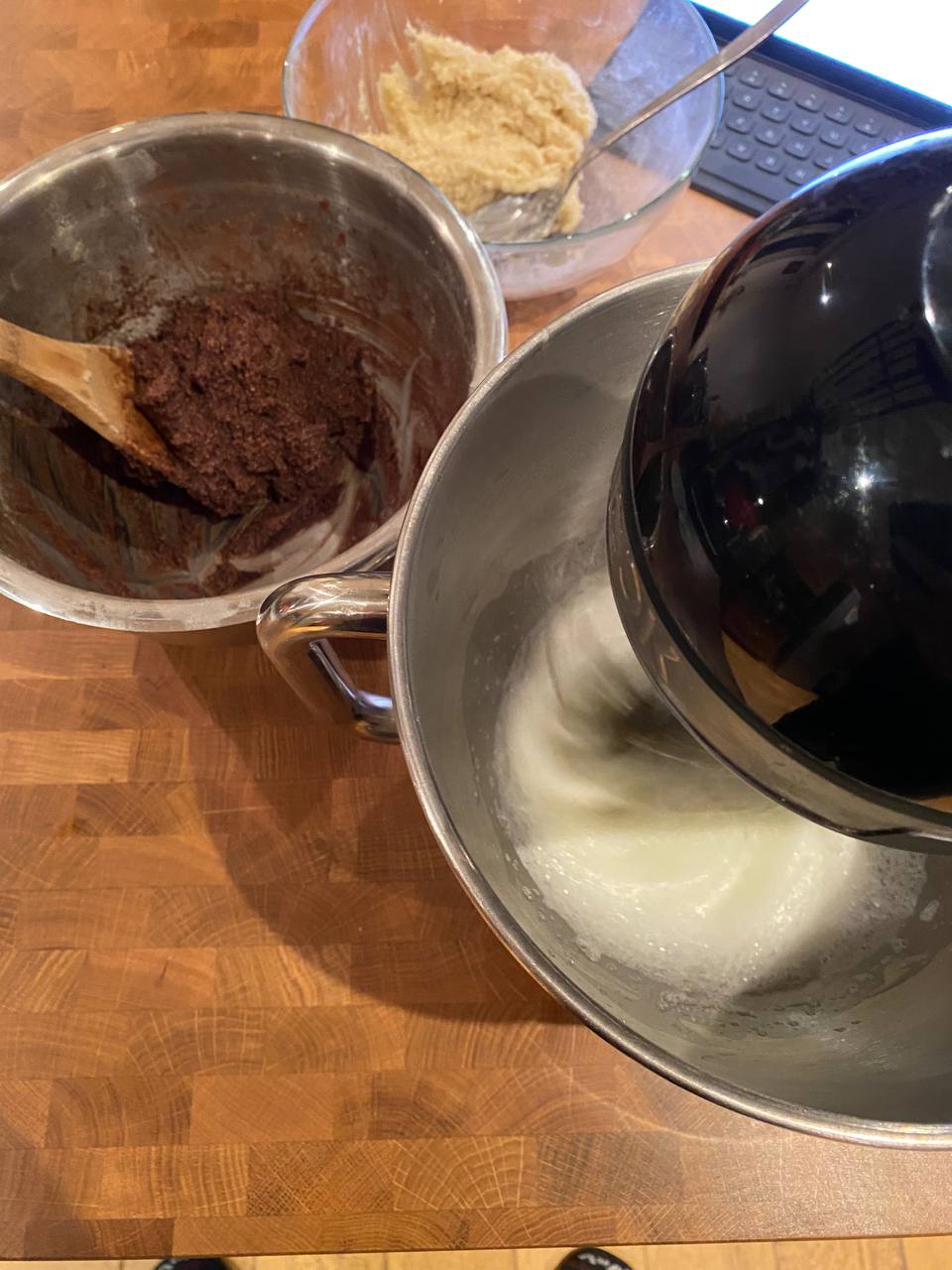
It took quite a few hours, as I pretty much never did any of its parts, from Tant-Pour-Tant to an Italian meringue to piping:
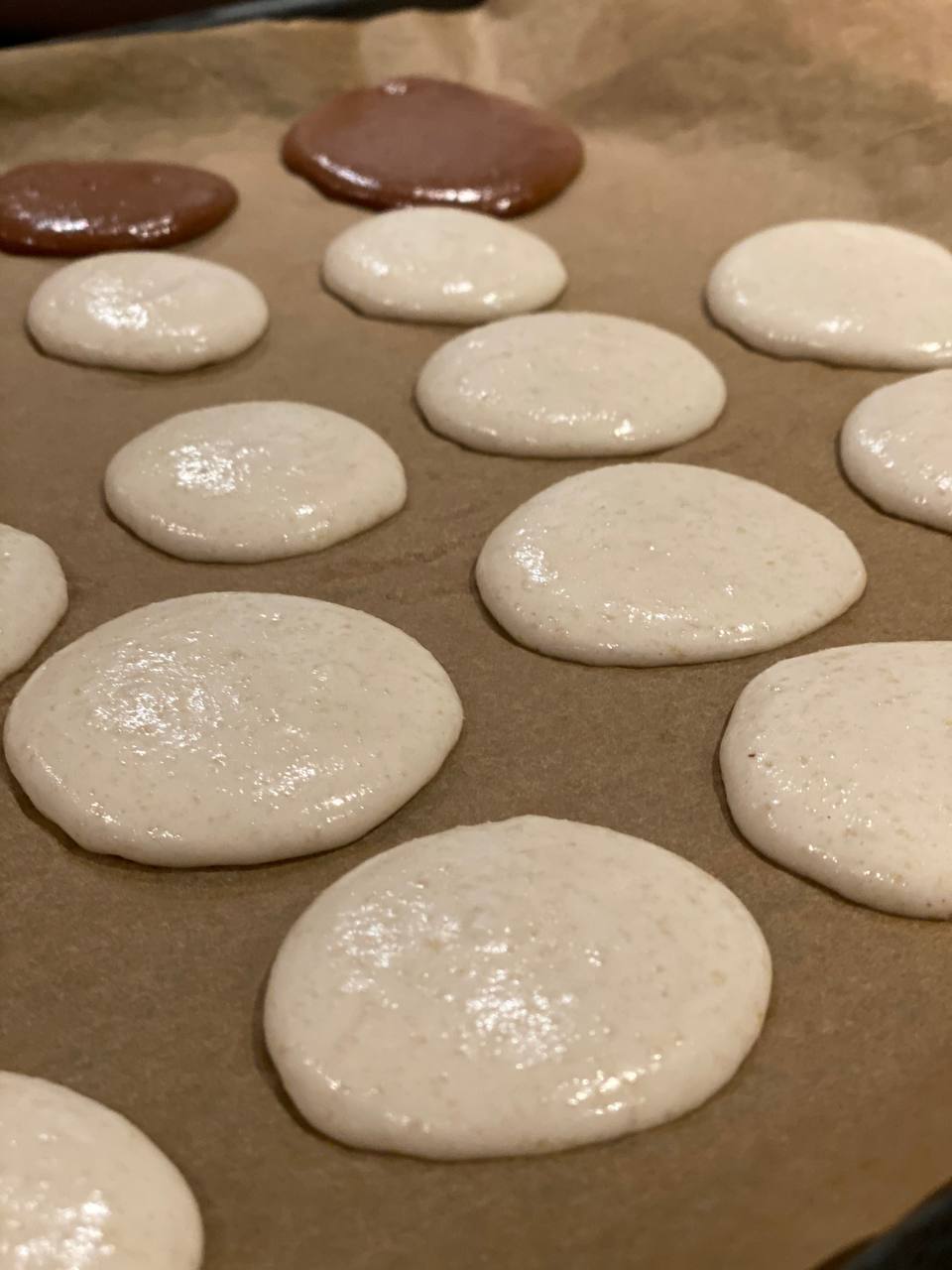
But everything worked out quite good:
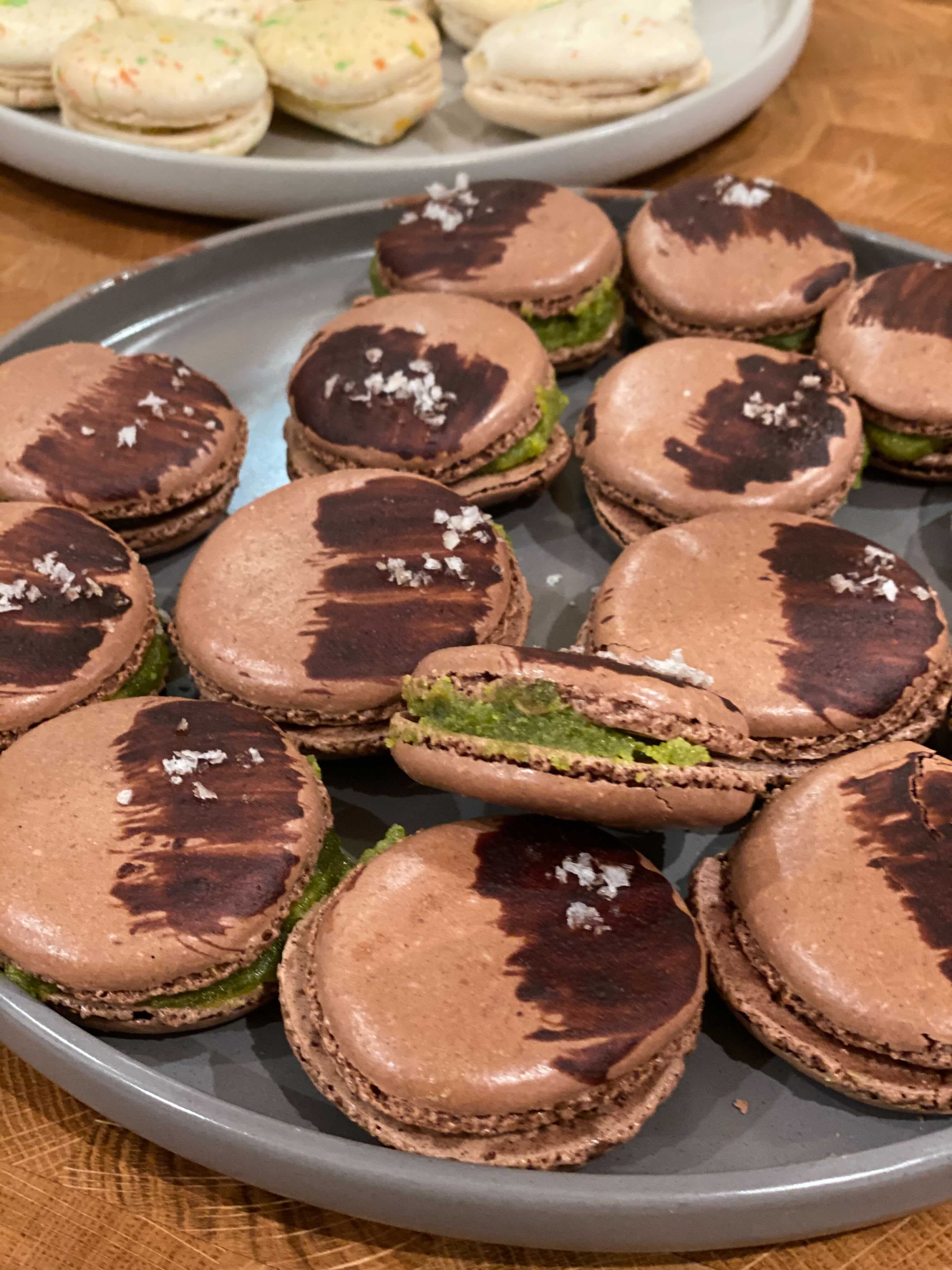
So I also made a spin off for a rainbow chip frosting:

Also we made our first ramen. The broth was quite a funky expirience, given that it consists of mostly ginger, scallions, and seaweed:

And mixing noodles with lye water was quite fun:
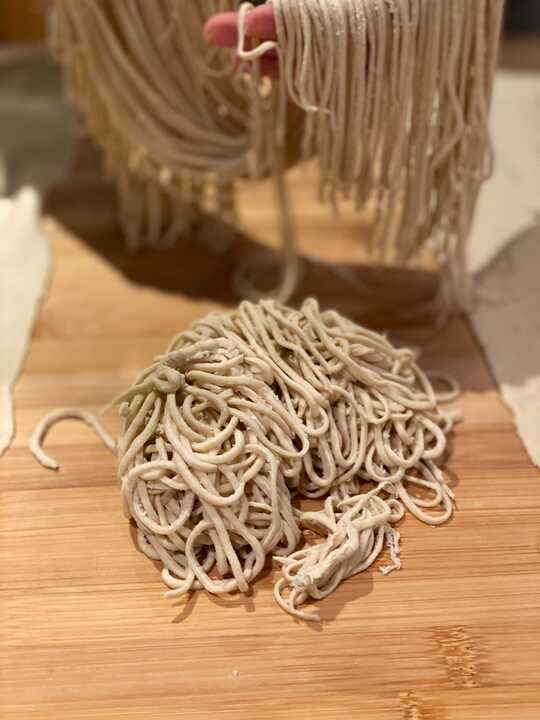
But the result was very rewarding:

On that note, the Ajitsuke Tamago (marinated eggs served on top of the bowl) are still work-in-progress to some extent, as they are still marinating, so the flavour changes on day-to-day basis.
We will see how it goes tomorrow.
Things I enjoyed reading ¶
1. So you wanna be a Chef by Anthony Bourdain ¶
If Hunter S. Thompson were to write about food, he would be Anthony Bourdain, and I mean it.
This is a really inspiring (ignore the discouraging tone in pretty much every paragraph) story from one of the most extreme* chefs of this century on becoming a chef. Or running away from restaurant kitchens.
If it matters to you, watch groups of chefs at food and wine festivals—or wherever industry people congregate and drink together after work. Observe their behaviors—as if spying on animals in the wild. Notice the hotel and country club chefs approach the pack. Immediately, the eyes of the pack will glaze over a little bit at the point of introduction. The hotel or country club species will be marginalized, shunted to the outside of the alpha animals. With jobs and lives that are widely viewed as being cushier and more secure, they enjoy less prestige—and less respect.
- e.g he managed to offend pretty much every other chef out there, except Julia Child.
2. Making Vaccine by johnswentworth ¶
If you ever wondered how hard would it be to create a vaccine at home, and happen to have spare 800$, here is a recipe:
Besides the peptides, all the other materials and equipment were on amazon, food grade, in quantities far larger than we are ever likely to use. Peptide synthesis and delivery was the slowest; everything else showed up within ~3 days of ordering (it’s amazon, after all).
There are a few disclaimers though, please read them carefully.
3. Postures of Transport: Sex, God, and Rocking Chairs by Hunter Dukes ¶
The title might be a bit misleading, but this is an essay.
An essay on rocking chairs.
Nineteenth-century klismonauts, if you will, knew something that scientists did not demonstrate until 2011, when a paper for Current Biology claimed that rocking chairs are wavy: they approximate sea travel, but also compound the waves in our brains, boosting slow oscillations and spindle activity. While this research focuses on how rocking “facilitates the transition from waking to sleep”, what about those twilight states of hypnagogic consciousness? How much of chair travel’s imaginary motion comes from the somatic rhythms of rockers and upholstery springs.
And boy-oh-boy, what a history do they have.
4. How to Make Fermented Hot Sauce by Tim Chin ¶
If I were to pick a single DIY hot sauce guide, it will be this one.
A great step-by-step tutorial with all caveats covered, from picking fresh vs dry peppers to using brine vs not using it.
Aging your ferment is optional. After the initial period of lacto-fermentation, you’re ready to make hot sauce. But you can also keep the ferment going in the jar—sometimes for years*. That waiting time is known as aging. After two to three weeks, most of the initial lacto-fermentation is complete, Shockey says. "Fermentation doesn’t happen anymore. But after that, compounds are changing. Phenolics add their own flavor, esters add their own flavor. Peppers are one of the few things you can age.
Extra-points for geeky notes on the chemistry behind certain stages.
5. A look at GSM by @hsand ¶
It's been quite a few years since GSM's widespread usage, and yet apparently its security still has a very wide room for improvement:
With less than $100 and a weekend it's possible to capture and analyze GSM traffic. With some extra effort it's possible to decrypt your own traffic, and depending on how your mobile provider has set up their network it may even be possible for somebody else to illegally decrypt traffic they don't own.
I also like the "ifs" in the post. On one side it seems to reassure the reader that everything is more or less ok. On the other side, it pretty much boils down to one's luck.
6. Seeking the Productive Life by @stephen_wolfram ¶
Following up on my numerous previous post about people's productivity, here is a very detailed story from Wolfram Alpha's creator on their very own personal infrastructure.
Some odd pieces of advice, too:
Could one actually work like this, typing and everything? After my “heart-rate discovery” I decided I had to try it. I thought I’d have to build something myself, but actually one can just buy “walking desks”, and so I did. And after minor modifications, I discovered that I could walk and type perfectly well with it, even for a couple of hours. I was embarrassed I hadn’t figured out such a simple solution 20 years ago.
I looked it up, and there are indeed "walking desks" on Amazon, ranging from £30.
Really glad I always use 13" screens, just in case I want to take the laptop on a walk.
7. Stop Swiss Cheesing your calendar by Mayank Verma ¶
A modern twist (or a new name) to the famous essay Maker's schedule, Manager's schedule.
It happens to me all the time, even despite the heroic efforts of the manager who tries to at least chain meetings or free up the days where they are spread in random chunks here and there.
When a meeting ends, we need time to clear the head, reset and get in the zone to do the work, especially when the job requires a cognitive effort like coding or design or even writing an email.
The idea to block most of the day for standalone time is not new, and yet brings problems too by increasing the back-and-forth interactions between other members of the team.
I wonder if there is a better way.
8. Don’t Underestimate the Power of a Walk by Deborah Grayson Riegel ¶
The hardest bit in walking daily to me is actually leaving the house. I feel like I overcame 90% of that issue by moving to a ground floor, and yet it still requires more friction than I'd love to have.
However, the reasons out here prove yet again that this is something one needs to work on.
I walk three miles per day, most days of the week, and I’m not alone in reaping the physiological, mental, and emotional rewards of walking. In his New Yorker article, “Why Walking Helps Us Think,” journalist Ferris Jabr writes that when we go for a walk, we perform better on tests of memory and attention; our brain cells build new connections, staving off the usual withering of brain tissue that comes with age; we can actively change the pace of our thoughts by deliberately walking more briskly or by slowing down; and our attention is left to meander and observe, helping us generate new ideas and to have strokes of insight.
The good part is, once I am out on a walk, I enjoy it, so the delayed reward helps the next time I try to convince myself to open the door.
9. What I Learned in Avalanche School by Heidi Julavits ¶
An exciting story from someone, who went to an avalanche survival school just because they could, despite a lack of avalanches in their area.
Because I had been an indiscriminately fearful child — and, despite repeated exposure to “considerable to high” dangers over many decades, that child failed to be eradicated and replaced by someone braver — the act of preparing for every type of unknown, even one I’m unlikely to encounter, began as a coping mechanism and evolved over the years into a passion.
I do relate to the concept of preparing to unlikely events, but seems like London-based avalanche trainings happen in snow-filled swimming pools, which somehow doesn't sound exciting enough.
Maybe next time.
10. A simple 11.2 GHz RadioTelescope (HW part) by Lodovico Lappetito ¶
Nothing unusual here, just a weekend DIY project for those keen on building a radio telescope from scratch.
We have described the construction of a small and inexpensive microwave radio telescope. We took advantage of the wide availability of radio components for satellite TV. The radiometer function, ie the actual measurement of the signal strength, will be implemented via software using the GNURadio framework: this will be the subject of the next post.
Surprisingly, the process seems to be quite clear even for those who purposefully omitted most of their physics lessons (cough).
Things I didn't know last Tuesday ¶
1. Rhubarb Triangle ¶
There is a place in Englands famous for a very specific thing:
A 9-square-mile (23 sq. km) area of West Yorkshire, England between Wakefield, Morley and Rothwell famous for producing early forced rhubarb.
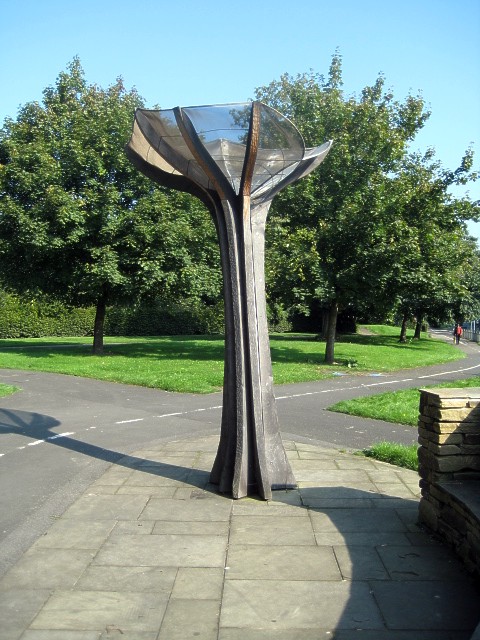
You don't need me to guess its national dish.
2. Childhood diet has lifelong impact ¶
So seems like raising children on Huel until they grow up and then switch to healthy meals won't work.
“We studied mice, but the effect we observed is equivalent to kids having a Western diet, high in fat and sugar and their gut microbiome still being affected up to six years after puberty,” explained UCR evolutionary physiologist Theodore Garland.
3. Desirable streets ¶
Apparently there is a study in Boston which focused on people taking longer paths even though they were aware of the shorter ones.
But on average, pedestrians choose to walk around 10% farther than their shortest path.
The key factors seem to be parks, lack of main roads, presence of cafes and shops, and so on.
4. Colorless green ideas sleep furiously ¶
An interesting phrase for either fans of Noam Chomsky or language enthusiasts:
Although the sentence is grammatically correct, no obvious understandable meaning can be derived from it, and thus it demonstrates the distinction between syntax and semantics. As an example of a category mistake, it was used to show the inadequacy of certain probabilistic models of grammar, and the need for more structured models.
However, the more I focus on its meaning the more sense it makes.
An odd and yet fascinating feeling.
5. First-born's gender is linked to divorces ¶
Not sure if there is any actionable takeaway from this selection of papers, but quite interesting that the research is going on for almost half a century.
Taken over the years, the daughter effect, though real, is small. In the Netherlands, by the time their first-born is 18, 20.12% of couples will have divorced if that child is a son, compared with 20.48% if she is a daughter—an increase in probability of 1.8%. But in the five years when the first-born is between the ages of 13 and 18, that increase goes up to 5%. And it peaks, at 9%, when the child is 15. In America, for which the data the researchers collected were sparser than those in the Netherlands, the numbers are roughly double this.
6. Long hundred ¶
Germanic languages are wacky, but if you didn't know that already here is another example:
The long hundred, also known as the great hundred or twelfty, is the number that was referred to as "hundred" in Germanic languages prior to the 15th century, which is now known as 120, one hundred and twenty, or six score.
7. Esquire ¶
Living in the country with some presence of monarchy I got quite used to certain titles in people's names, like Sir or Dame or Baronet.
However, this is the one I knew and yet seen only in classical Russian literature, even though it still exists.
The word itself derives from Old French, and in turn from Latin, where it means something like “shield-holder.” In the 1200s and 1300s in England, a variety of languages were used, so such figures might be referred to as the Latin armiger (“arms-holder,”) or scutifer (“shield-bearer”), or the French escuier, which became “esquire”.
8. Eccles cake ¶
Another example of regional dishes within a small island.
An Eccles cake is a small, round pie, similar to a turnover, filled with currants and made from flaky pastry with butter, sometimes topped with demerara sugar. The word cake has generally since narrowed in meaning to sweet, leavened baked goods, except this example.

By the way, my fascination by extremely local British cuisine might make one think that Russia doesn't have dishes common in specific regions, which is not entirely true.
There are certain things, traceable to some part of the country, but most of them were unified by a lack of printing freedom in the Soviet times, hence the same recipes were used pretty much everywhere.
9. A toy whistle used to hack telephone companies ¶
Draper didn’t take long to realize he could use this toy whistle to simulate the exact tones required to make free calls. This stunt earned him the nick name Cap’n Crunch, and it also led him to create something called the blue box. The blue box was a device designed to mimic the tones used by phone companies to make free calls anywhere.
What's the moral of the story? Don't skip your breakfasts, I guess.
10. Lie-to-children ¶
A very common approach to ridiculously simplifying things for children aparently has a name, counts as a methodology and is covered in some papers.
...is a simplified explanation of technical or complex subjects as a teaching method for children and laypeople. The technique has been incorporated by academics within the fields of biology, evolution, bioinformatics and the social sciences.
Also works with adults (disclaimer: that's pretty much how I run my Twitter).
Book of the week ¶
Some of the books picked up from charity shops are obscure gems of the city. Knowing that, at some point last year we couldn't pass by Christopher Winn's I never knew that about London.
Chelsea Harbour which, like Chelsea Football Club, is not in chelsea, or even a harbour, was built for P&O in 1980s and has become a favourite haunt of pop stars and footballers. It includes a design centre, luxury aparements, a marina, the Conrad Hotel and the 21-storey Belvedere Tower, 250 ft (76 m) high and crowned by a golden 'tide ball' which moves up and down with the tide.
To be fair, almost every paragraph in there should have a dedicated place in "Things I didn't know last Tuesday", but I will spare you from the horror of reading about the same city for the next decade or so.
However this one is fascinating as I pass by this Tower almost every day, and while the roof shape always felt odd, and the tide was very noticeable, I never connected the two dots:

Thank you and see you in a week! ¶
If you have any questions, or want to suggest a link for the next newsletter, please drop me a message on Twitter or reply to this email.
Cheers! 🍸